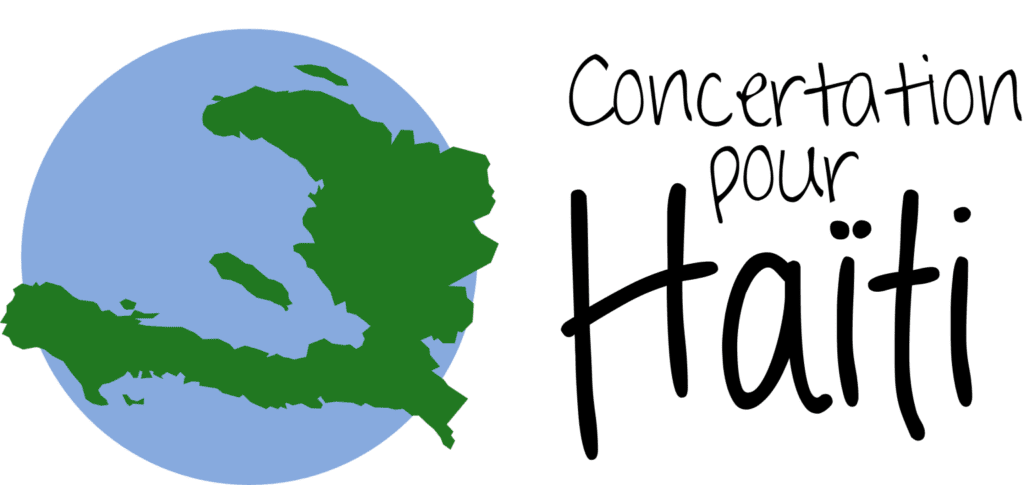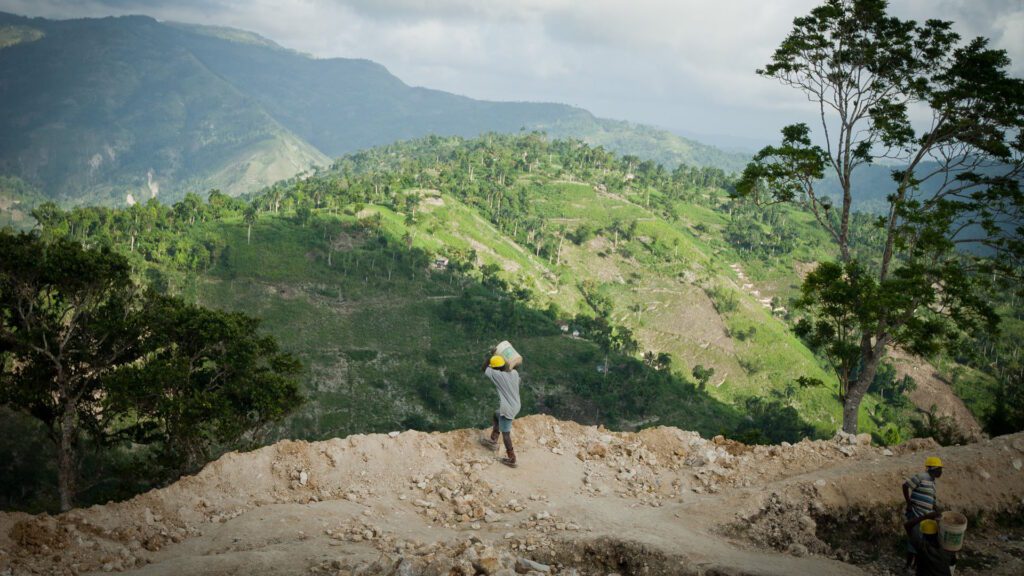By Mary Durran, Marcela Escribano, Jean-Claude Icart and Amélie Nguyen, members of the Concertation pour Haïti


This statement, co-written by our Latin America programs officer Mary Durran, was issued by the Concertation pour Haïti (CPH, Dialogue for Haiti), a group of Quebec-based civil society organizations and activists whose work focuses on human rights and inclusive development in Haiti. The CPH is part of the Association québécoise des organismes de coopération internationale (AQOCI, Quebec Association of International Cooperation Organizations), a coalition of 70+ organizations that includes Development and Peace ― Caritas Canada. This statement was first published yesterday in French on the AQOCI website and is reproduced here with permission.


As armed gangs continue tightening their grip on Haiti and half the population faces acute famine, the Concertation pour Haïti (CPH, see Web page in French) is alerting people to the imminent launch of gold mining operations by a Canadian company. This poses a serious threat to the Caribbean nation in terms of serious damage to its environment and depletion of its already precarious water supply.
Unigold, a company listed on the Toronto Stock Exchange, is expected to soon obtain a licence to operate the Candelones concession (also known as Neita Sur) in Restauracion, in the province of Dajabon [in the Dominican Republic], near the Haitian border. The concession is estimated to contain 2.25 million ounces of gold, and the licence will grant Unigold exclusive extractive rights for 75 years. The licence application was reviewed by the Mining Directorate and forwarded with a positive recommendation to the Dominican Ministry of Energy and Mines in April 2023.
Also, Barrick Gold has also announced that it has acquired 60 per cent of the exploration rights to another concession, the Neita Norte, with Unigold holding the remaining 40 per cent.
According to Unigold, the mining operations will initially require the withdrawal of the equivalent of 28 Olympic swimming pools of water (70,000 cubic metres). It takes an average of 500,000 litres of water to extract and wash a kilogram of gold.
The CPH stands in solidarity with local organizations that have expressed concern the mine, which will use cyanide to extract gold ore, will pollute the Massacre and Artibonite rivers, which are shared [by Haiti and the Dominican Republic, the two countries] on Hispaniola Island. These two rivers are important sources of irrigation for rice and other crops vital to Haiti’s food security.
A September 2023 joint statement by the Haitian and Dominican Jesuits said, “The extractivist mining model would result in the contamination of the water we all need to live, in addition to causing other harms to the peasant population,” characterizing the mine as a “serious threat.”
On February 4, a group of local Dominican associations declared, “We will oppose all mining operations, even if it means sacrificing our blood to Mother Earth for the sake of future generations.”
Haiti is the Latin American country that is most vulnerable to the impacts of climate change. Most Haitians in rural areas have to trek long distances to find water, and only 43 per cent of them have access to drinking water. Deforestation linked to poverty has degraded watersheds and ecosystems.
The CPH believes that the impacts of the activities of Unigold―a Canadian company that enjoys the support of the Government of Canada―are incompatible with the efforts of Canadian development projects to protect the environment, especially water reserves, and to reduce the effects of climate change.
The CPH also reiterates the call, made in its 2016 report on mining in Haiti (see document in French), for Canada to ensure the accountability of Canadian companies operating abroad and to remove existing legal barriers so that people who are harmed by the overseas actions of Canadian mining companies can take legal action in Canada.
Founded in 1994, the Concertation pour Haïti (CPH) is a group of Quebec civil society organizations and individuals involved in solidarity with the Haitian people. The CPH does its utmost to support Haitian civil society in the quest for greater wellbeing, by working to promote the rights of Haitian citizens.
Contact
Stéphie-Rose Nyot Nyot
Communications officer, AQOCI
514-437-8575 ext. 107
communications@aqoci.qc.ca

